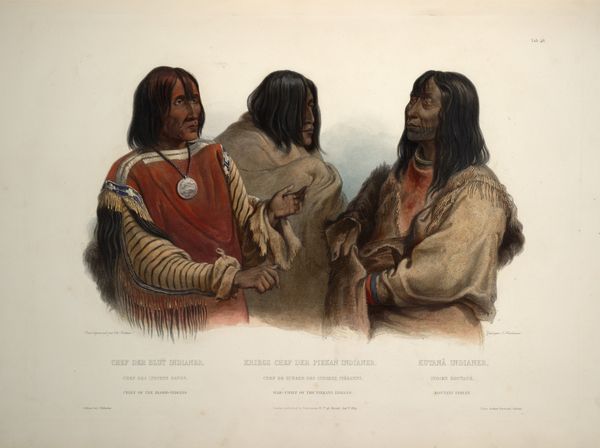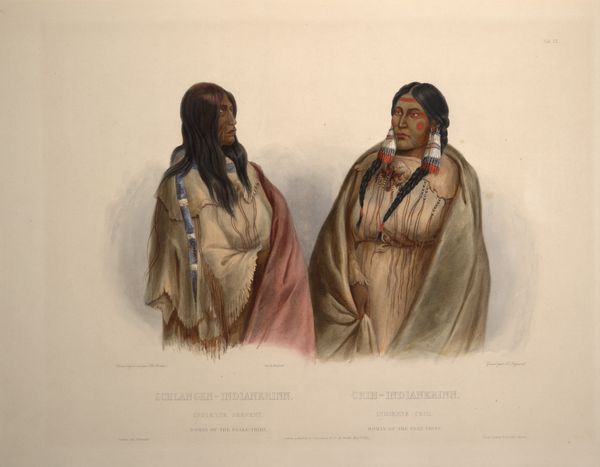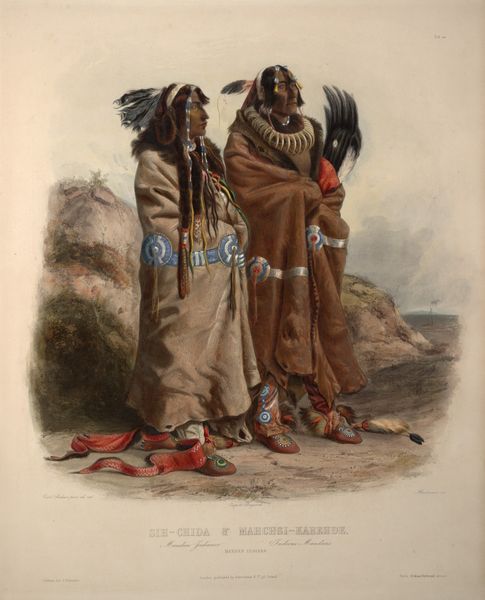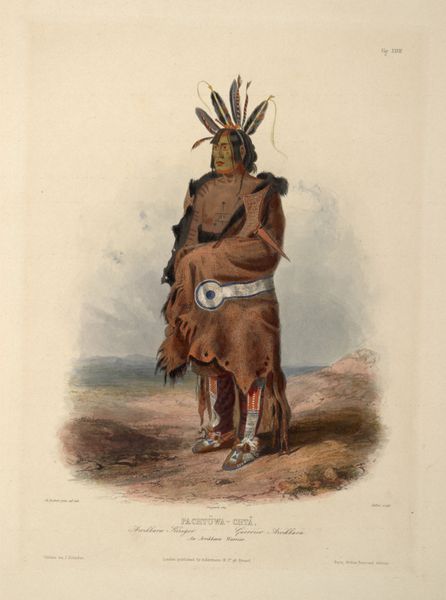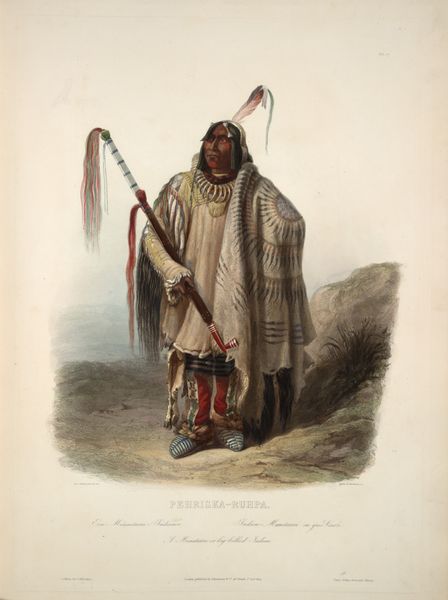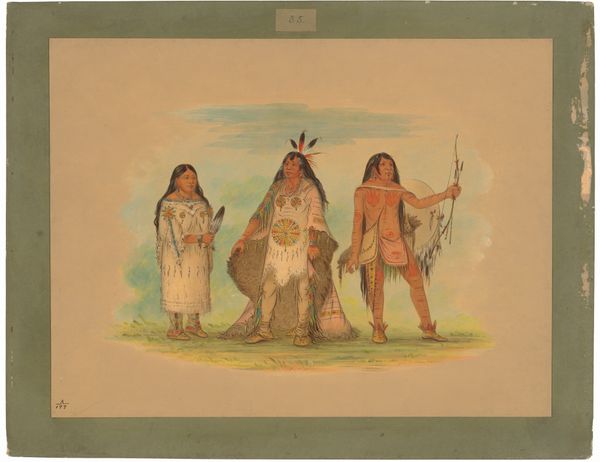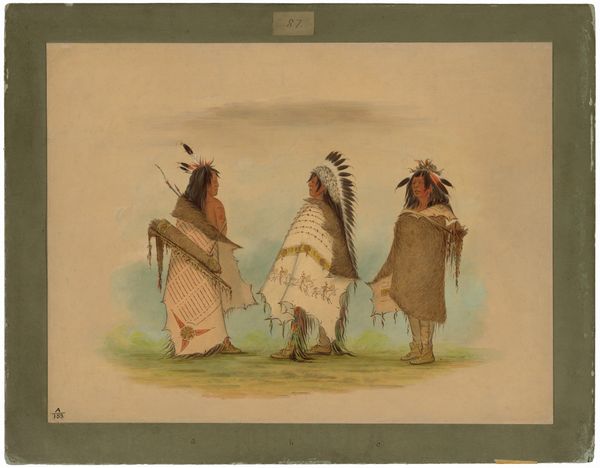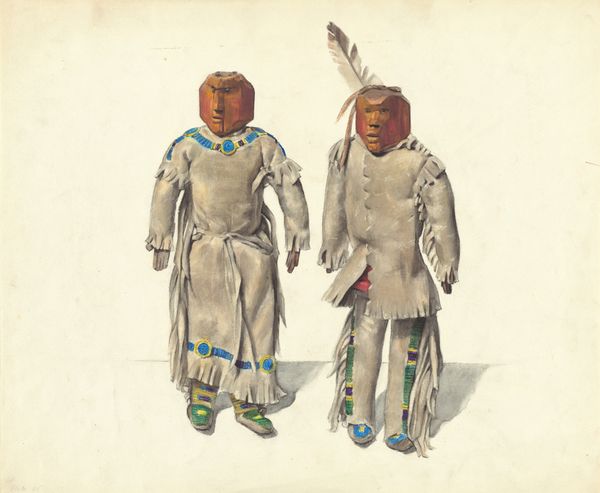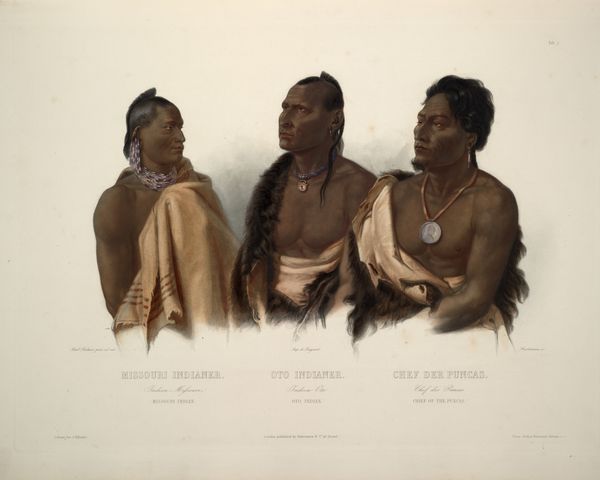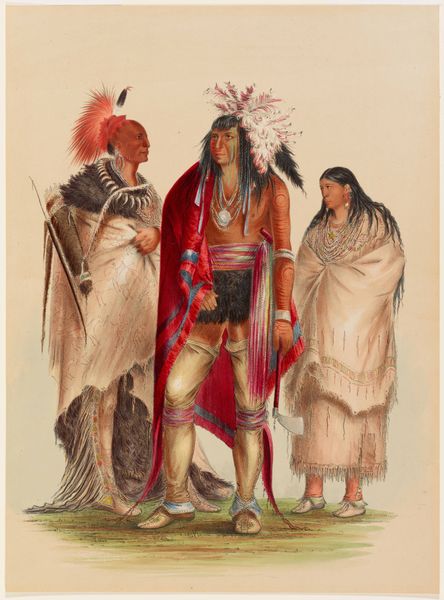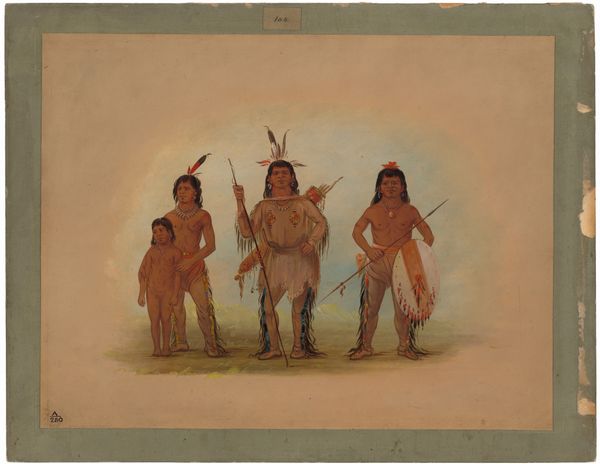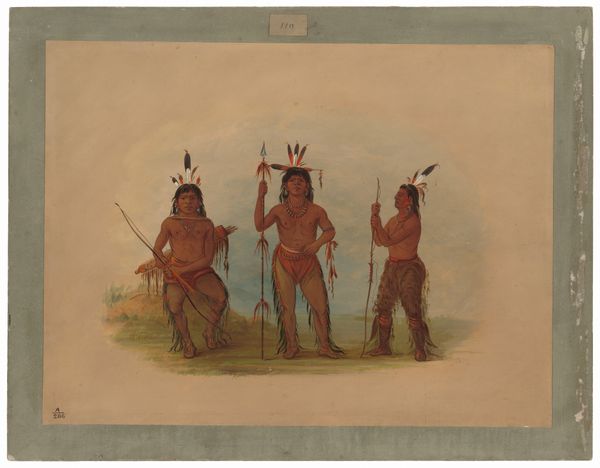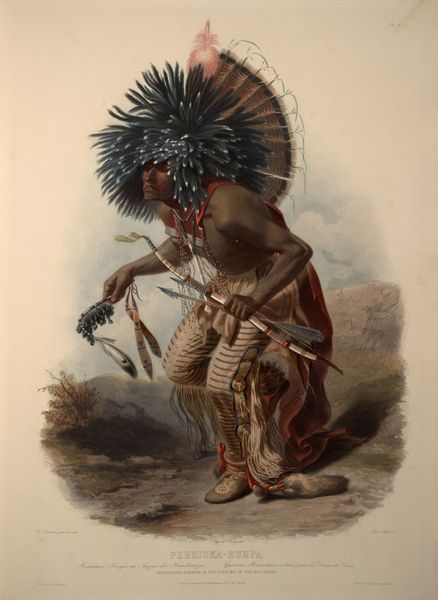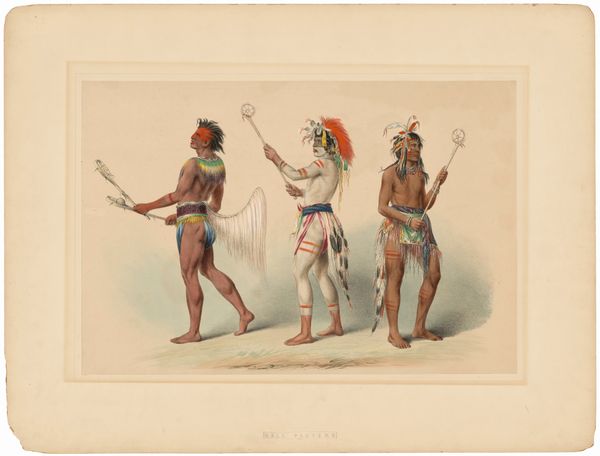
Noapeh, an Assiniboin Indian and Psihdja-Sahpa, a Yanktonan Indian, plate 12 from Volume 2 of 'Travels in the Interior of North America' 1844
0:00
0:00
karlbodmer
Private Collection
drawing, paper
#
portrait
#
drawing
#
paper
#
watercolour illustration
#
watercolor
#
indigenous-americas
Copyright: Public domain
Karl Bodmer created this print of Noapeh and Psihdja-Sahpa as part of his journey through North America. Observe Noapeh, adorned with a striking headdress featuring horns, an ancient symbol of power and virility. Such motifs recur throughout history; consider the horned helmets of European Bronze Age warriors or the divine figures of Mesopotamia. Here, the horns signify Noapeh’s status and strength within his community. His chest bears a circular emblem, perhaps representing the sun or a shield, underscoring his role as a protector and leader. Psihdja-Sahpa’s tattoos are equally evocative. The handprints on his chest may symbolize personal achievements or spiritual connections. Across cultures, handprints have served as signatures, marks of ownership, and declarations of presence. The emotional weight of these symbols lies in their ability to communicate identity and belonging, engaging viewers on a primal, subconscious level. These symbols, like echoes across time, demonstrate how humans continually reinvent and adapt ancestral motifs to reflect contemporary realities.
Comments
No comments
Be the first to comment and join the conversation on the ultimate creative platform.
